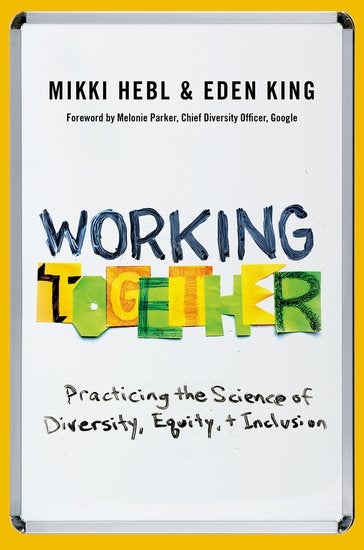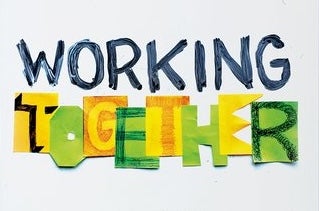Following the racial and gender reckonings intensified by the #BlackLivesMatter and #MeToo movements, diversity, equity and inclusion (DEI) has been the subject of significant public debate and widespread media attention. A new book from Rice University psychologists outlines the state-of-the-art science that makes the case for DEI.

“Working Together: Practicing the Science of Diversity, Equity, and Inclusion” (Oxford University Press, 232 pages, $35) was authored by Mikki Hebl, the Martha and Henry Malcolm Lovett Chair of Psychological Sciences, and Eden King, the Lynette S. Autrey Professor of Psychological Sciences. Hebl and King are industrial organizational psychologists who have devoted their careers to studying workplace discrimination and the subtle biases that are especially harmful in these settings. As top researchers in this field, they said they felt compelled to make the case for why DEI is so important, especially in the workplace.
“For ages, people have been harassed, stereotyped, demeaned and victimized in the workplace,” Hebl said. “Diversity, equity and inclusion efforts have emerged as a way to combat this negativity, but until now, there was no book examining the science supporting DEI initiatives.”
“This is why we felt compelled to write this book,” King said. “Now work professionals will have a science-backed roadmap to encourage DEI in workplace settings, which we hope will lead to more fulfilling and equitable employment for all.”
The book is based on meticulous research from expert scholars, case studies with large-scale and strong evidence and work from other industry professionals, all of which underline the importance of DEI initiatives in the workplace. The authors explore what diversity is, outline the moral and financial imperatives for DEI, identify biases that impact the workplace and their psychological explanations and other relevant topics.
Hebl and King also provide guidance on what allies and organizations can do to attract and retain employees who support DEI initiatives and how individuals and organizations alike can be allies to those who have faced discrimination.
“By describing scientific evidence regarding when, why and how DEI efforts can make a difference, strategies for change are illuminated across the talent management cycle,” Hebl and King write. “We hope this book will serve as an evidence-based guide toward positive change for companies, leaders and HR professionals.”
More information on the book is online here.

